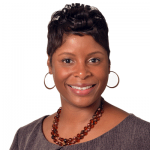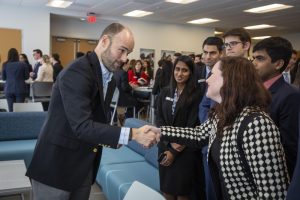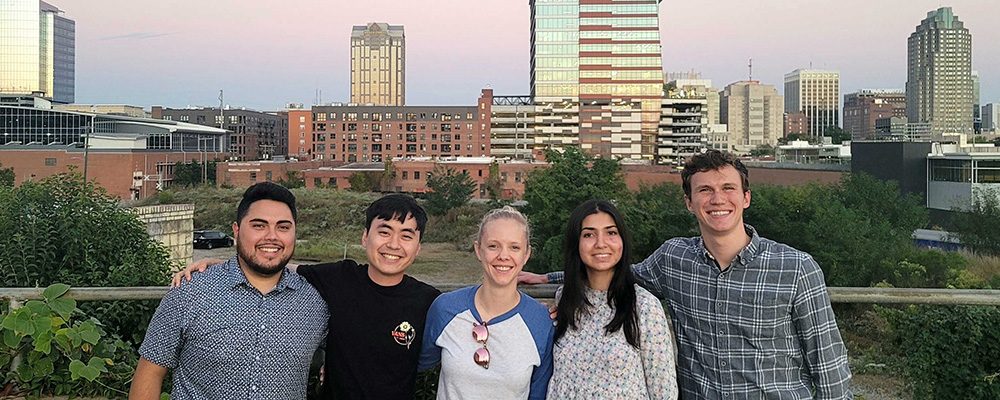Over the past five months, MSA students have regularly engaged with industry representatives as part of a speaker series course. More than 40 companies visited the Institute to teach students how their teams use data analytics. Many MSA alumni have returned to the Institute with their employers to lead these sessions and share their professional experiences.
 These informational and networking opportunities laid the groundwork for the MSA Class of 2020’s job search. As students geared up for job interviews, now well underway, the Institute team helped them prepare with resume and cover letter reviews, interview workshops, and mock interviews. We spoke with the Institute’s Head of Career Services, April Wilson, to learn more about this unique process that the MSA offers.
These informational and networking opportunities laid the groundwork for the MSA Class of 2020’s job search. As students geared up for job interviews, now well underway, the Institute team helped them prepare with resume and cover letter reviews, interview workshops, and mock interviews. We spoke with the Institute’s Head of Career Services, April Wilson, to learn more about this unique process that the MSA offers.
What are the most common industries of visiting employers? For what positions do they typically recruit?
Every year, that changes up a little bit. But most of the time, the common industries that visit and recruit from the Institute are consulting and financial services. Some of the common job titles being offered are consultants, data scientists, and analysts.
What is the format of the industry speakers’ sessions — are they recruiting or do they present a specific topic/lesson?
It’s a little bit of both because sometimes we have companies that will do information sessions that don’t come back to hire. What we tell the students, in the beginning, is that this is a class that’s taught by industry leaders. We want them to understand how analytics is utilized in different types of industries. Students can actually see some of the projects that companies work on and how analytics is used. The second part of each session is an opportunity for students to network with analytics professionals and, hopefully, network to the point where they may be considered for a job at that particular company.
What does that networking look like?
After an industry speaker session, we advise our students to connect on LinkedIn with the representatives they’ve met to start creating a network. They can start reaching out to those individuals, maybe to ask specific questions or to let those individuals know how interested they are in their companies.
How were students prepared before the speaker sessions?
We try to prepare them the best we can. We do a couple of networking workshops and classes for the students, with our career services and technical communications staff. We also host a Rules of Engagement seminar with an outside consultant, Mary Crane. She conducts a two-hour workshop, a mock networking event, and a dinner to teach students how to maneuver their way through a professional business meal. We go over little things such as how to shake hands, how to give business cards, how to talk in a conversation circle, etc. One of the last things we do is we do a practice networking session with alumni.
 How did students prepare for the job interview season?
How did students prepare for the job interview season?
We conducted a three-hour “Interviewing 101” class where we went over all the major types of interviews that our employers normally do (behavioral, technical, and case study). We also had some alumni from EY lead additional case study prep. We encourage our students to get together on their own to do practice sessions. After that, we hosted mock interviews with our alumni and professional partners. Each student had an opportunity to sit down one-on-one and receive immediate feedback.
What is distinctive about the MSA’s career services process?
We manage to get the employers to come to the Institute for interviews. We take care of everything that the employer needs, from advertising their positions to getting the students signed up for interviews. We pride ourselves on making this process very easy for our employers. Our executive director often says we just want our employers to essentially be able to parachute in for the day, talk to as many students as they want, and be able to leave having a general understanding of who they want to make an offer to or invite for a second-round interview. We encourage employers to cast a wide net and talk to as many students as they want. I think that if we did it traditionally — or had the students contact them — the employers wouldn’t be as open to do that because it would be a lot of person-hours on their end, whereas here we take care of all that for them.
How does the Institute’s Career Services aid students post-graduation?
We are starting to focus more on assisting our alumni and finding their next job or helping them reevaluate their careers. A big component has become coaching the alumni and helping them to figure out what’s next for them. We pride ourselves on not only helping the students while they are in the program but also helping the students after they graduate.
Data Column | Institute for Advanced Analytics
The Collaborative Blog for Students in the Master of Science in Analytics
